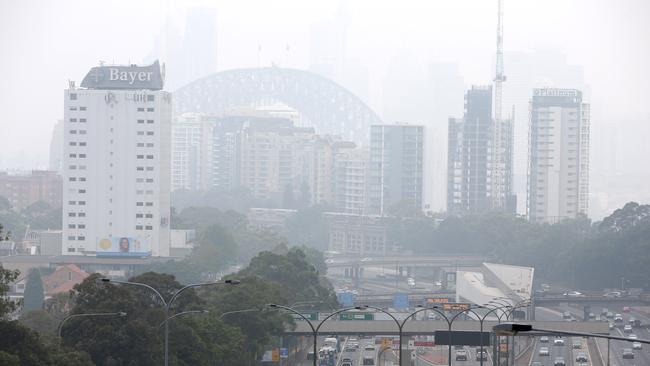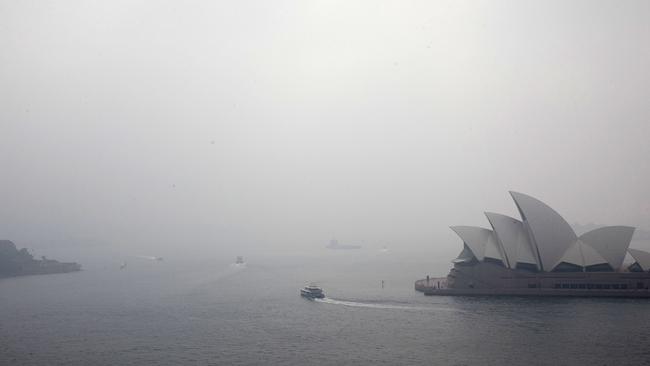US issues travel warning over Australian bushfires, poor air quality
Queensland premier asks president to reconsider advice to US tourists to avoid Australia because of bushfires, poor air quality.

Americans destined for Australia are being ordered to “exercise caution” after Washington issued a fresh travel warning to its 327 million citizens of the ongoing danger posed by bushfires and “poor air quality”.
The advisory has led the Federal and Queensland governments to appeal directly to US President Donald Trump amid fears the warning is “inappropriate” and puts Australia on the same level as Hong Kong, Papua New Guinea and Myanmar.
Queensland Premier Annastacia Palaszczuk has passionately pleaded with the US leader to reconsider the warning, which she claimed could be damaging to the tourism industry at a delicate time.
“The last thing we need is for international tourists to think that the entire country of Australia is not safe to visit,” Ms Palaszczuk wrote on Friday.
“We have large parts of our beautiful country that are not affected and would love to welcome American tourists here.
“I urge you to change the travel advice for American tourists looking to visit Australia.”
Americans are Australia’s third largest source of tourists and in the last financial year, more than 760,000 US citizens visited Australia and spent around $4 billion.
Federal opposition leader Anthony Albanese said the warning was “very inappropriate” and urged the Prime Minister Scott Morrison to appeal personally to Donald Trump.
“The travel warning to Australia, to put it on the same level as countries that are very dangerous to travel to is in my view very inappropriate indeed,” he said. “We need people to keep coming to Australia.”
The warning issued by the US Department of State said American tourists should “consider postponing their trip” to areas affected by bushfires and poor air quality.
“Smoke is also causing poor air quality which can cause increased health problems for travellers,” the warning stated.
“Consider postponing your travel plans to areas where air quality is significantly affected by bushfire conditions.”

The smoke shrouding Australia’s south east coast has pushed air quality to at-times hazardous levels for more than two months, including in Sydney, Melbourne and Canberra.
The department increased the danger from Level 1, which means “exercise normal precautions,” to Level 2, “exercise increased caution.”
Other Level 2 advisories include Mexico, where the department cites crime and kidnapping risks, and Hong Kong, where travellers are warned to exercise caution “due to civil unrest.”
Ms Palaszczuk said Queensland was largely unaffected by the current bushfire crisis and was in a position to support the nation’s tourism industry as nervous visitors weigh up whether to bypass fire-ravaged NSW, Victoria and South Australia.
“Queensland has more than 4000 miles of beautiful coastline, tropical islands and, of course, the Great Barrier Reef,” she wrote.
More than a million tourists travelled to the Queensland outback last year, and their visits will be crucial to support the nation’s economy when the fires ease.
“The rebuilding effort will be extensive as will the economic recovery for our whole country,” Ms Palaszczuk added.
“One of the industries that will be crucial to help rebuild our economy is tourism.”






To join the conversation, please log in. Don't have an account? Register
Join the conversation, you are commenting as Logout